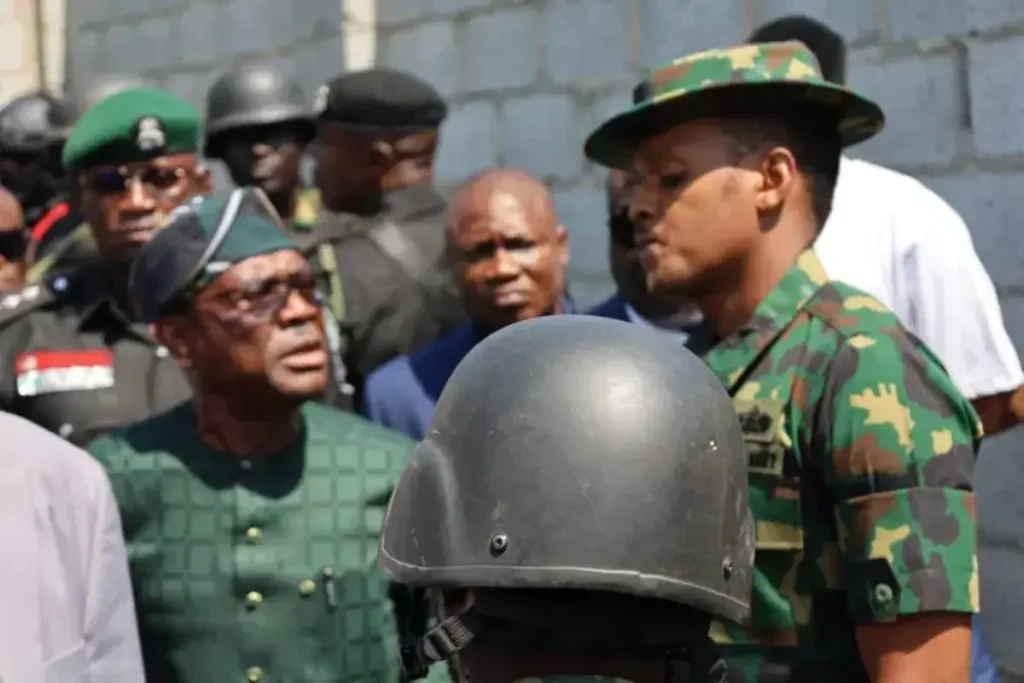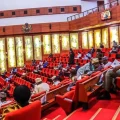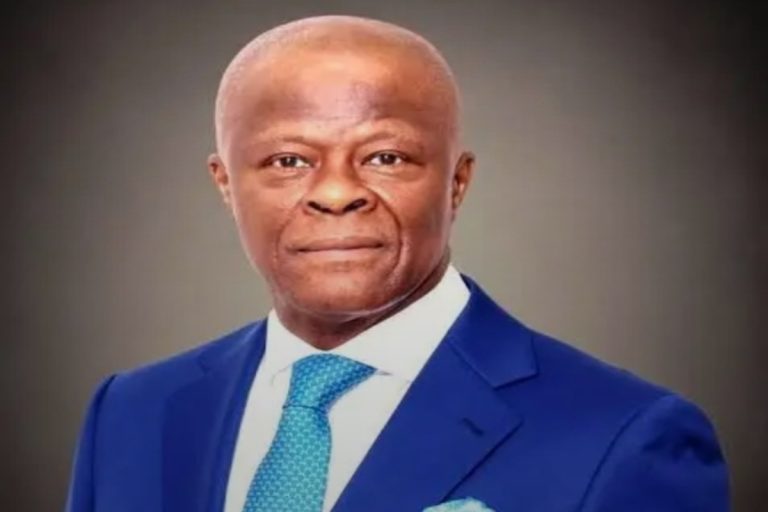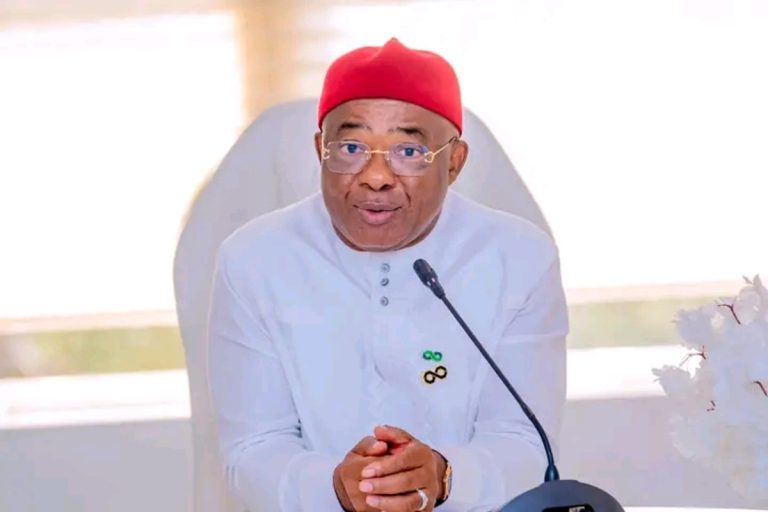
Chidoka urges Wike to apologise after confrontation with officer, reinforcing proper ministerial procedures and discipline. Image credit: Social Media
Chidoka Criticises Wike’s Roadside Confrontation
In a statement on his Facebook page on Tuesday, Chidoka said any officer, in uniform or plain clothes, represents the President and the sovereignty of Nigeria.
“To abuse such an officer is to diminish the authority of the Republic itself,” he noted.
Chidoka described Wike’s decision to personally enforce a directive at a disputed site as a “fundamental misstep.”
He explained that in constitutional democracies, executive power operates through institutions, courts, and lawful instruments—not through confrontation or direct enforcement.
Ministers Must Act Through Processes, Not Presence
“In a democracy, ministers act through process, not presence,” Chidoka stated.
He said that a formal communication to the Minister of Defence, which oversees the Armed Forces, would have been sufficient to address any concerns.
If the officers were on illegal duty, established disciplinary mechanisms could have resolved the matter.
Chain of Command Must Be Respected
Chidoka warned that trading words with uniformed officers acting under orders undermines discipline and confuses the chain of command.
“The officer’s duty is to obey the chain of command, not verbal instructions on a roadside; the minister’s duty is to act through lawful channels,” he said.
He further criticised the conduct of the DSS protective detail, noting their responsibility is to extract their principal safely from tense situations, not escalate conflicts.
“Security officers must remember that their loyalty is to the state, not to personalities,” Chidoka added.
Incident Undermines Governance and Ministerial Dignity
Describing the incident as a cautionary tale, he said, “This episode demeans the dignity of the office of the Minister and undermines the image of disciplined governance.”
Chidoka concluded that the minister should apologise to the officer for the alleged misconduct, stressing that such behaviour is unacceptable.
Global Context on Ministerial Accountability
The call by Chidoka aligns with principles of executive accountability widely observed in constitutional democracies around the world.
Experts note that confrontations between high-ranking officials and law enforcement officers can erode public trust and compromise institutional authority.
Governance analysts argue that personal involvement in enforcement matters should be replaced by formal institutional procedures.
Law Enforcement Rights and Duties
Security professionals emphasise that officers in uniform act on orders from a structured chain of command.
Direct intervention by political figures may be seen as undue influence and could create operational confusion.
Officers are trained to prioritise legal directives over verbal instructions from non-commanding officials.
His statement reinforces the idea that accountability mechanisms must be followed to maintain discipline.
Public Reaction and Political Implications
The incident has drawn public attention, sparking debate over ministerial conduct in Nigeria’s political landscape.
Social commentators and governance experts are urging officials to respect institutional boundaries.
Wike’s office has yet to issue a formal response to Chidoka’s call for an apology.
Globally, ministers are expected to issue directives through administrative channels rather than physical presence at operational sites.
The former minister’s appeal mirrors practices in other democracies, where executive authority is exercised through policy and institutional oversight.
Legal scholars emphasise that adherence to procedure strengthens government legitimacy and public confidence.
Related: Imo Governor Urges Legal Recognition for Traditional Rulers’ Role in Governance
He reiterated the need for Wike to apologise to the officer to reinforce discipline and respect for institutions.
The episode is cited as a caution for all political leaders on maintaining professional conduct with law enforcement personnel.





